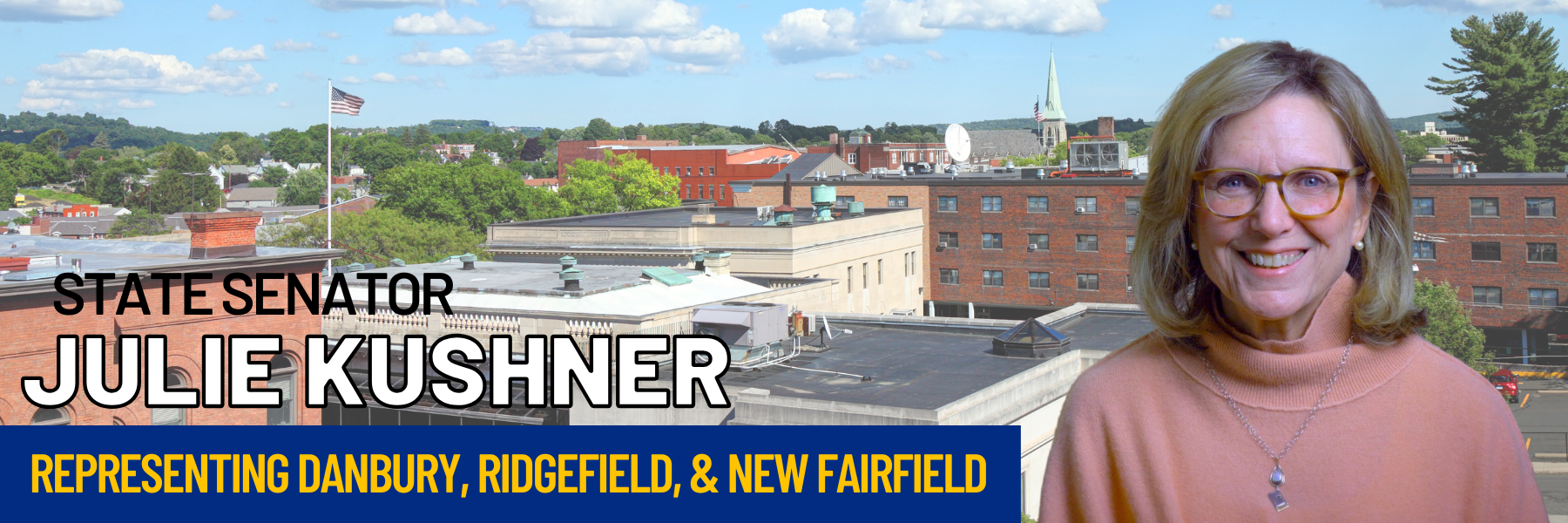SENATORS MAHER & KUSHNER WELCOME STATE FUNDING FOR WASTE REDUCTION IN BETHEL, NEWTON, RIDGEFIELD AND KENT
State Senators Ceci Maher (D-Wilton) and Julie Kushner (D-Danbury) today welcomed $1.5 million in state grants to support waste reduction in these four towns.
The state awarded $1,542,527 to the Housatonic Resources Recovery Authority to support the deployment of additional satellite food scraps collection units, a new aerated static pile composting system in Bethel, the expansion of the aerated static pile composting system in Newtown, and waste diversion enhancements and improvements in Ridgefield and Kent.
The HRRA is a regional, governmental, waste management and recycling authority serving 14 municipalities in western Connecticut and a population of over 266,000 people. HRRA municipalities include Bethel, Bridgewater, Brookfield, Danbury, Kent, New Fairfield, New Milford, Newtown, Redding, Ridgefield, Roxbury, Sherman, Weston, Wilton.
“Composting through food scrap recycling is the way of the future – it reduces waste, creates a highly usable end product, and cuts down on costs,” said Sen. Maher. “I’m excited to see the support and growth of this effort in our area as a model for the state.”
“Waste disposal has nearly reached the level of unaffordability, so we have to be creative in our approaches to reducing and re-using the household trash that keeps being generated,” Sen. Kushner said. “I was proud to support these grants and I’m glad to see some of them coming back to the region to help taxpayers and the environment.”
“With these grants, we’re continuing to support municipalities in their efforts to identify solutions to rising waste disposal costs that work for their communities,” Governor Ned Lamont said in announcing the grants today. “The smart and sustainable programs these grants will support give residents and municipalities more control over their disposal costs.”
“Separating organic materials from the trash should be thought of as a resource, not a waste. More food reaches landfills and incinerators than any other single material in our everyday trash. Compost added to gardens, construction sites, and poor soils makes great things happen,” the HRRA says on its website. “The HRRA is working to provide organics recycling programs throughout the region as a public service. Our goals include reduction of waste and greenhouse gas emissions, sequestering carbon, and improving ecosystem health.”
Connecticut is facing a growing waste crisis. With the closure of the Materials Innovation and Recycling Authority in Hartford, municipalities have fewer disposal options located within Connecticut’s borders, causing communities to rely increasingly on trucking waste to landfills in other states.
Restoring Connecticut’s self-sufficiency in waste management is critical for a reliable waste system and long-term stability in tipping fees. Many municipalities and regional organizations are taking positive steps to increase diversion and invest in waste management infrastructure, and the state Department of Energy and Environmental Protection has been supporting those efforts through multiple grant opportunities, including the first round of the Sustainable Materials Management (SMM) grant program and the Materials Management Infrastructure grant program.
The SMM grant program helps municipalities and regional entities respond to this crisis by providing funds to develop and implement a wide variety of waste diversion and reduction programs and initiatives. These programs and initiatives include unit-based pricing systems operated at municipal transfer stations; decentralized food scrap collection units; technical assistance for the startup of an aerated static pile composting facility; curbside food scraps collection; regional composting enhancements paired with an in-vessel composter installation; technical support for the expansion of a regional waste authority’s operations; and a major urban initiative to launch curbside co-collection of municipal solid waste and food scraps within a unit-based pricing system.
The first round of the SMM grant program resulted in more than 1,000 tons of waste diverted across participating municipalities
Share this page:
